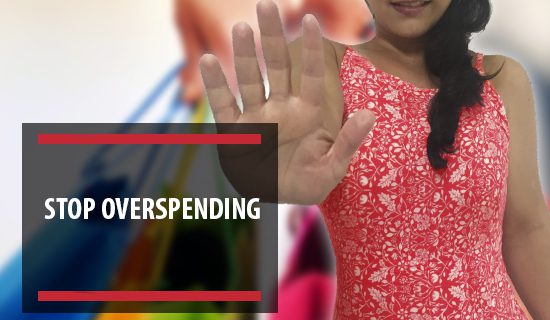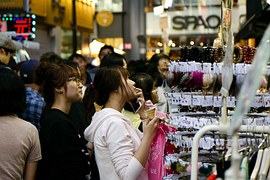Overspending? Some Reasons You Probably Never Thought Of

With today’s tough economic conditions, being a careful consumer, sticking to a budget, and putting funds aside on a regular basis is more important than ever. Still, consumers believe they are completely under control when they make shopping decisions. A growing number of studies say otherwise. The millions of consumers who have charged-off (placed in collection activities) billions of dollars in credit card requiring debt settlement in one way or another is a clear example.
“We are much more seduced by outside factors when shopping than we think we are,” said Martin Lindstrom, a marketing expert and author of Buyology: Truth and Lies About Why We Buy. “And the more on top of the world the consumer feels when they walk into a retail store, the less they probably are because they let their guards down.”
But Lindstrom and others have found that by the time we decide to approach the cash register, a wide range of unseen factors in the store and in our own heads has likely influenced our decision to shop and how much we spend.
Here is a list of factors determined by experts along with recent studies that highlight some of the lesser known factors that influence our spending.
- Shopping While Hungry: Many studies have shown that consumers buy more food when they are hungry, but this can extend to other purchases as well. Hungry shoppers may have a bigger appetite for buying merchandise. Some stores will disperse aromas of vanilla and cinnamon to make you feel hungrier.
 Shopping with Your Partner: Shopping with your spouse or significant other can entice you both to pick up items you would have otherwise overlooked. “You start to inspire each other to make a purchase. The first person may not need the item, but the other may push for it,” Lindstrom said. “You are also much more likely to have a fight because you disagree about a particular product, and as a result, you are more likely to buy that product to get the other party to stop complaining.”
Shopping with Your Partner: Shopping with your spouse or significant other can entice you both to pick up items you would have otherwise overlooked. “You start to inspire each other to make a purchase. The first person may not need the item, but the other may push for it,” Lindstrom said. “You are also much more likely to have a fight because you disagree about a particular product, and as a result, you are more likely to buy that product to get the other party to stop complaining.”
- How Religious You Are: Secular shoppers may spend more than their religious counterparts. Research by Fitzsimons and his associates surveyed more than 1,000 consumers, finding those with less religion in their lives were more likely to embrace brand-name products as a means to express their identity. While consumers who identify themselves as being more religious felt less of a desire to find other ways to express themselves, and thus were more likely to purchase generic goods. The result being that shoppers spend much more on branded goods.
- Mood: Many studies found consumers are more likely to spend more when they are feeling sad, because they are more desperate to satisfy their urges and cheer themselves up. But, if you are feeling a greater amount of pride, you are also more likely to desire nicer, fancier products like watches or shoes that will allow you to show off a little. When consumers are feeling content with life, they are more likely to buy fixtures for their home such as dishwashers and beds, or comfortable clothes for lounging around their home.
- Shopping Counter-Clockwise: One study shows it feels more natural for us to walk counterclockwise around an area. When we walk in a clockwise direction, we feel a little uncomfortable, and are likely to exit the store sooner.

- Shopping Cart Size: The larger the cart, the greater the likelihood you will purchase more. Ten items may seem like a lot to buy when they are overflowing from a small basket as opposed to when they take up a small space in a large cart.
- Your Last Name: One study showed that the farther back in the alphabet your name falls, the more conditioned you have become to being at the end of the line. Teachers, event planners, and anyone else with a list of names is going to organize it alphabetically. Often, this means the person whose last name begins with Z is left with fewer options. As a result, when this person grows older, they are more likely to compensate for missed opportunities by trying to be one of the first to purchase a new product. Those whose last names begin with A or B may be less interested in being among the first, and can stand to wait longer.
- Genetics: A recent study found that the degree to which you are willing to compromise on purchases, prefer luxury items or are prone to gamble may be based in your genes. The study was based on identical and fraternal twins and found strong similarities in their choices in these shopping categories.
Knowing that these triggers exist and can influence your shopping should help you curb your spending and truly give you more control over how you shop.



 Login
Login






